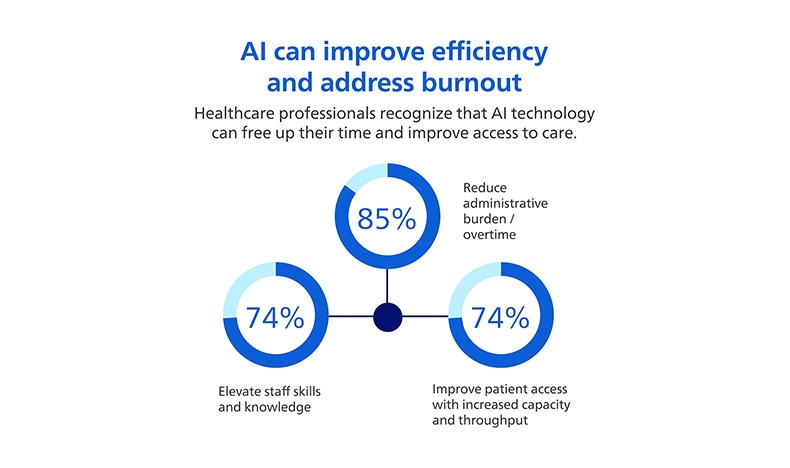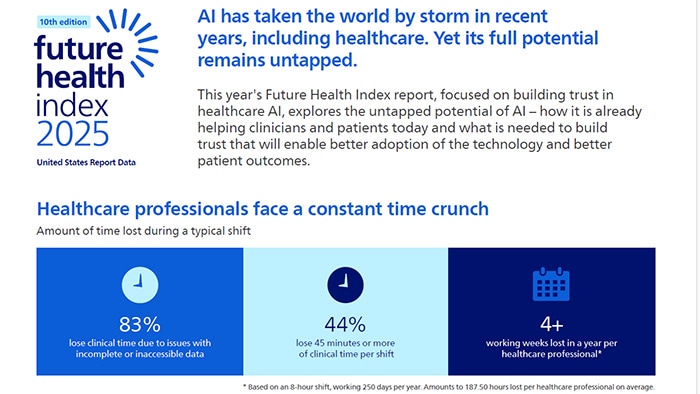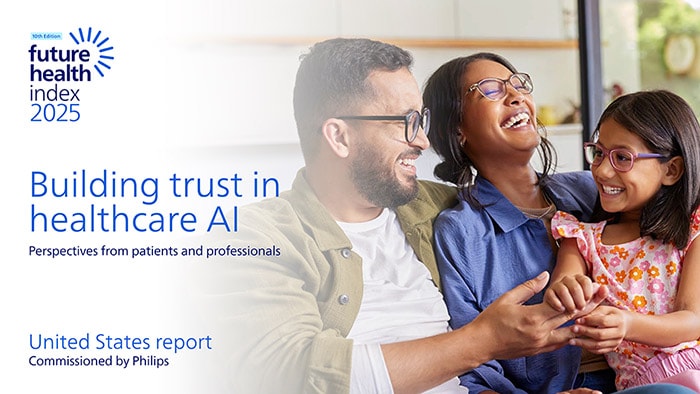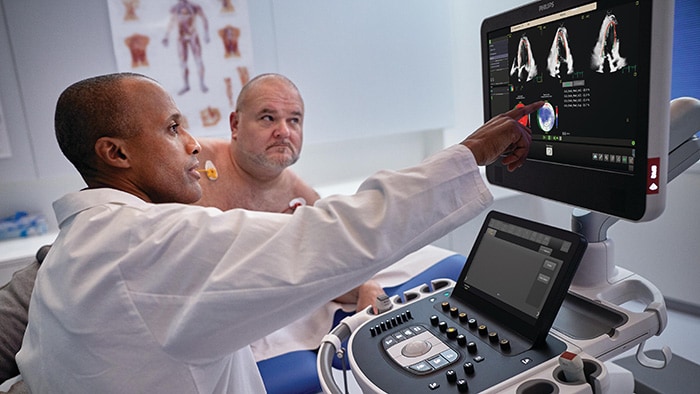Philips Future Health Index 2025 report highlights significant trust gap in healthcare AI between clinicians and patients
AI in healthcare can address some of healthcare’s most pressing challenges, but trust barriers threaten progress
May 15, 2025 | 2 minute read
Cambridge, Mass. – Royal Philips (NYSE: PHG, AEX: PHIA), a global leader in health technology, today unveiled its 2025 Future Health Index U.S. report, “Building trust in healthcare AI,” spotlighting the state of healthcare and uncovering a significant trust gap between healthcare professionals (HCPs) and patients around the role of AI in healthcare. This 10th edition report, commissioned by Philips, reveals a healthcare system under mounting strain and signals that AI can help. However, gaps in trust in AI threaten to stall progress.

With feelings of stress, frustration and burnout, the report finds that almost one quarter of HCPs say they wouldn’t pursue a career in healthcare if they could go back in time. Patients are also feeling the strain, with the longest wait times to see a specialist averaging almost two months, which can lead to increased anxiety and potentially poorer outcomes. While a majority of HCPs (63%) are optimistic that AI could improve patient outcomes, less than half of patients surveyed are optimistic that AI can improve healthcare. The gap widens even further among patients aged 45 or over, with just 33% being positive about AI’s role in improving healthcare.

This year’s Future Health Index also illustrates HCPs’ growing recognition of the transformative potential of AI in enhancing their work and the care they provide to patients. Nearly two-thirds (62%) value AI’s ability to enhance the patient experience through shorter procedure times and reduced wait times for patients. Moreover, 85% state that AI can reduce their administrative burden, and 74% see AI improving patient access through increased capacity and throughput as well as increased face-to-face time with patients, reinforcing the crucial role AI can play in speeding healthcare delivery.
Together, we can unlock AI’s potential to reduce provider burnout and elevate patient care.
“AI is reshaping healthcare – but its future depends on trust, transparency and collaboration with clinicians and patients,” said Jeff DiLullo, Chief Region Leader, Philips North America. “Together, we can unlock AI’s potential to reduce provider burnout and elevate patient care.”
About the Future Health Index 2025
The Future Health Index is commissioned by Philips and is the largest global survey of its kind, analyzing the priorities and perspectives of more than 1,900 healthcare professionals and more than 16,000 patients across 16 countries. In its 10th edition, the Future Health Index 2025 investigates how innovative technologies, particularly AI, can empower healthcare professionals to deliver better care for more people. For more information, or to download the full FHI 2025 U.S. report, visit www.usa.philips.com/futurehealthindex-2025.
Media contacts
You are now exiting the Philips United States (US) site and entering the Philips global site. This content is intended for a global audience. It may not apply to the US and should not be interpreted as meeting US standards, executive orders or regulations.
Continue











